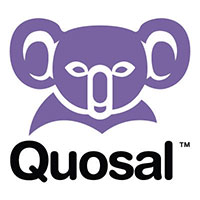
Self-service is generally considered a good thing, especially in CRM, where there has been significant investment in empowering people to take on more responsibility for provisioning service or making purchases. But it’s not all great and there is some interesting blowback that is causing vendors to reconsider how their offerings work.
In sales, self-service has resulted in truncated sales cycles and fewer invitations to the dance — you know this problem. Customers do their own research and engage a company and its representatives later, when they are looking for pricing for their final decisions. In the past, vendors could control the information flow and customers would need to engage just to get a basic fact, that’s not true today.
We all know this happened as an inevitable consequence of the Internet, and now vendors are struggling to find ways to engage customers earlier in their processes so that they aren’t locked out of deals before they can even find out about them. Also, nobody wants to be engaged at the last minute when all they can do is price, propose, and pray. We’re definitely dealing with unforeseen consequences.
Interestingly, and perhaps ironically, self-service has an equal and opposite effect in customer service. Customers are very happy not to wait in phone queues to ask simple questions. As a result, social media, FAQs, knowledge bases, and communities are supplying solutions for many of the issues that once consumed service reps’ time — another benefit of the Internet. This also means fewer touches, with fewer chances to make an impression or try for the additional sale.
Short-Term Relationships
This doesn’t mean service is dead. In fact, with the easy questions handled by other means, more or less, the volume of issues might have gone down, but their complexities have risen. As a result, engaging with contact center folk might take longer because even these veterans no longer have answers on the tips of their tongues and they need to do research. I don’t think this is as simple as a training issue. To be a service rep today means juggling more information, harder issues, and more customers.
This argues for a paradigm shift in sales and service, which is being driven by analytics and journey mapping. Previous approaches to sales, as well as marketing, have been reactive — the customer asks and the vendor responds. That makes a lot of sense because it is the nature of a conversation. But I’d suggest that conversations are not what customers seek. What they want is a relationship based on authentic engagement that is there when they want it, but then vanishes.
Certainly, as customers, we seek and expect professionalism in all dimensions; from the speed of dealing with us, to the correctness of whatever is provided as a solution to our needs. Too often though, we get wound around the axle of personalization because we erroneously believe we need to develop a personal relationship with customers, but I think that’s a misunderstanding of the ‘R’ in CRM. There are lots of ways to relate, and most of them don’t become personal.
Let me suggest that the real goal should be the authenticity that’s born of professionalism and steeped in the understanding that as customers we’re busy and we want to get our issues dealt with so that we can move on to the next thing on our daily bucket lists.
Proactive Measures
That’s where analytics come in, especially machine learning and journey mapping, and while we’re at it, this is the nub of what I am calling customer science. Machine learning can analyze your customer data and tell you where the clusters are, where the largest proportion of issues are, and what the successful activities will be. With a product, you might discover through machine learning that many people get stuck at the same place or that they have a specific difficulty at the same place in a business process.
Armed with this knowledge, you can become proactive by building journey maps of your processes and thus prepare for the inevitable. Should you also use this knowledge to fix or improve a broken product or process? Absolutely. But that’s another department. In service and sales you have to deal with today’s reality today. So building out your repertoire of solutions for known moments of truth is a great way to build authenticity. It ensures your precision and professionalism and gets your customers back to their lives with minimal fuss.
So what’s better, authenticity or personalization? Why must we think we need to choose? A warm greeting is always welcome and demonstrating empathy for a customer issue is not only good business, it is humane. It just shouldn’t be the only trick in our kits because no amount of being nice substitutes for a solution.

























































